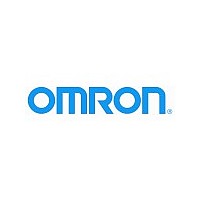V020-E3-2 Omron, V020-E3-2 Datasheet - Page 142

V020-E3-2
Manufacturer Part Number
V020-E3-2
Description
Publications, Books
Manufacturer
Omron
Datasheet
1.V020-E3-2.pdf
(304 pages)
Specifications of V020-E3-2
Lead Free Status / RoHS Status
na
- Current page: 142 of 304
- Download datasheet (3Mb)
4-4
4-4-1
Displaying a Character String
Characters and Figures Which can be Displayed
126
Memory Tables
Memory Tables
Character-String Memory Table
The NT20S has the “character-string memory table” for the character data and the
“numeral memory table” for numeric data which can be written and updated by the
PC/Host.
The contents of the memory tables can be set by using the support tool when dis-
playing the memory tables on the screen or by editing the table.
The character-string memory table is an NT20S internal memory used to store the
character data. Up to 128 character-string memory tables can be used, and up to
16 full size characters (32 bytes) can be stored in one memory table. The charac-
ter-string memory tables at up to 32 positions can be registered in one screen.
The character-string memory tables are registered with table numbers 0 to 127.
When creating the screen data by using the support tool, set the position on the
screen to display a character string and also set a character string number to be
displayed.
When the NT20S is operated, the screen displays the contents of the character-
string memory table.
When using Ver.5 direct connection, it is possible to display the contents of charac-
ter-string memory tables by specifying their numbers with numeral memory tables
(indirect specification), rather than directly changing the character-string memory
table contents.
For details on how to change currently displayed character strings, refer to
“Changing Displayed Numerals or Character Strings (Changing the Contents of
Allocated Words)” on page 169, and “Write Character-string Memory Table” on
page 205.
When using the NT20S-ST128 (RS-232C), character strings can be also dis-
played in accordance with commands from the host, independently of the current-
ly displayed screen (terminal function). Refer to “Specify Displayed Characters”
on page 220.
The power of expression of the screen can be increased by giving various attrib-
utes such as the enlarged or reverse display to the characters of the character-
string memory table.
The character attributes can be set in the edit screen when creating the screen
data by using the support tool.
Section 4-4
Related parts for V020-E3-2
Image
Part Number
Description
Manufacturer
Datasheet
Request
R

Part Number:
Description:
G6S-2GLow Signal Relay
Manufacturer:
Omron Corporation
Datasheet:

Part Number:
Description:
Compact, Low-cost, SSR Switching 5 to 20 A
Manufacturer:
Omron Corporation
Datasheet:

Part Number:
Description:
Manufacturer:
Omron Corporation
Datasheet:

Part Number:
Description:
Manufacturer:
Omron Corporation
Datasheet:

Part Number:
Description:
Manufacturer:
Omron Corporation
Datasheet:

Part Number:
Description:
Manufacturer:
Omron Corporation
Datasheet:

Part Number:
Description:
Manufacturer:
Omron Corporation
Datasheet:

Part Number:
Description:
Manufacturer:
Omron Corporation
Datasheet:










